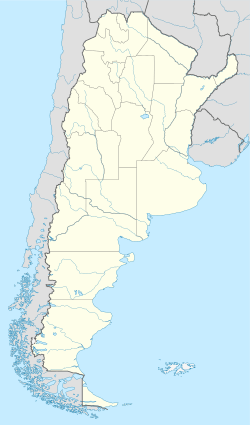Bella Vista, Tucumán facts for kids
Quick facts for kids
Bella Vista
|
|
|---|---|
| Country | |
| Province | Tucumán |
| Department | Leales |
| Population | |
| • Total | 15,126 |
| Demonym(s) | bellavistence |
| Time zone | UTC-3 (ART) |
| CPA base |
T4168
|
| Dialing code | +54 0381 |
Bella Vista is a city located in the southeastern part of Tucumán Province, Argentina. It is about 25 kilometers (15.5 miles) south of Tucumán, which is the capital city of the province.
Contents
A Look at Bella Vista's History
Bella Vista was once known as Los Tres Bajos, which means "The Three Hollows." The city grew up around a large sugar plantation that had the same name.
How Bella Vista Started
The sugar plantation was founded in the early 1900s by Manuel García Fernández. He was very creative and tried to grow different types of crops. When sugar prices dropped, he started making other products. These included ethyl alcohol and cellulose, which is used to make paper. He even had a silkworm farm!
Manuel García Fernández also built a special community for his workers. This was a planned community with homes along Avenida de las Moreras. As more businesses, like the Norwinco match factory, opened, Bella Vista grew into a small city. This happened before García's farm was sold in 1965, during a time when sugar prices were very low.
Culture and Community Life
In the 1960s, a man named Luis "Lucho" Díaz was the town's Justice of the Peace. He was also a poet and helped make Bella Vista a lively place for culture. He helped start the Centro Juvenil Cultural (Youth Cultural Center) and the Teatro Vocacional de Bella Vista (Bella Vista Vocational Theater).
During the late 1960s, many sugar mills in the area closed. This was because the government stopped giving money to support sugar farms. This made Bella Vista an important place for labor union activities. A local leader named Atilio Santillán led the Sugar Workers' Federation of Tucumán (FOTIA). This group grew very large, with over 70,000 members.
The sugar mill in Bella Vista was bought by a state company in 1973. Later, in 1977, it became a private company again.
See also
 In Spanish: Bella Vista (Tucumán) para niños
In Spanish: Bella Vista (Tucumán) para niños
 | Frances Mary Albrier |
 | Whitney Young |
 | Muhammad Ali |


